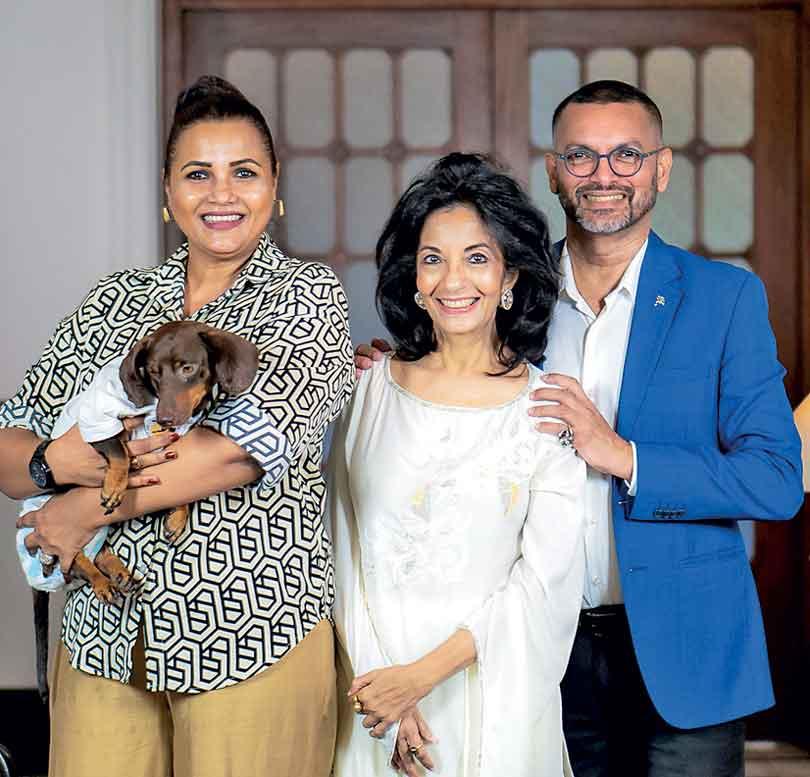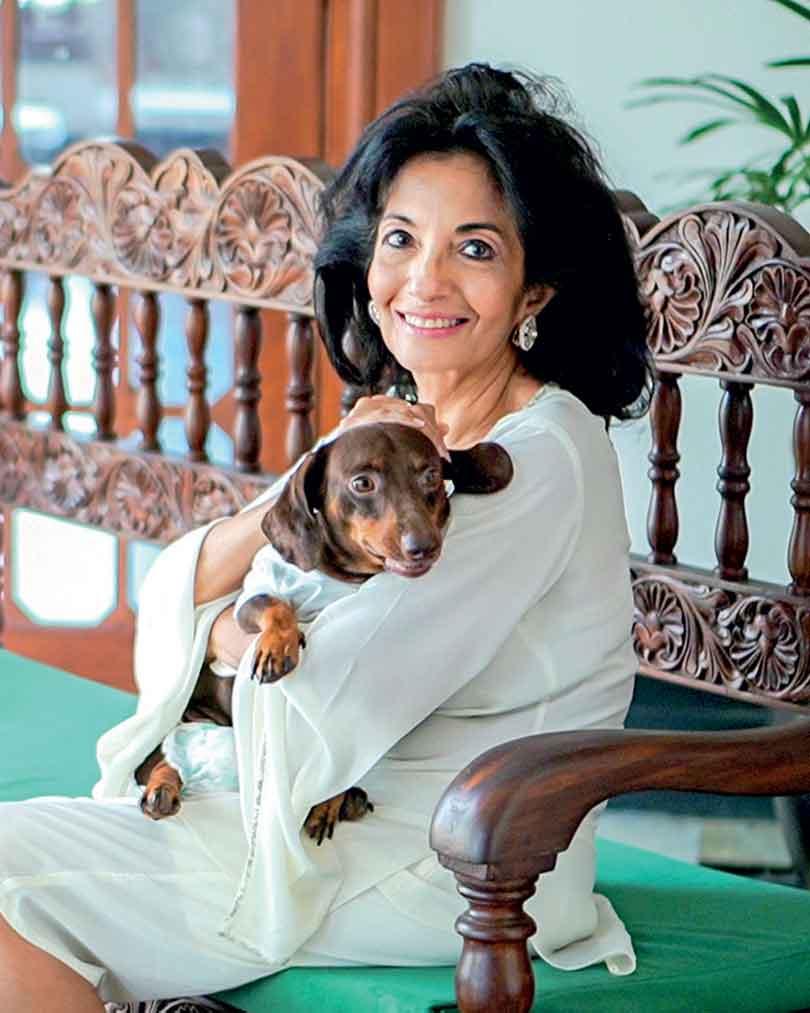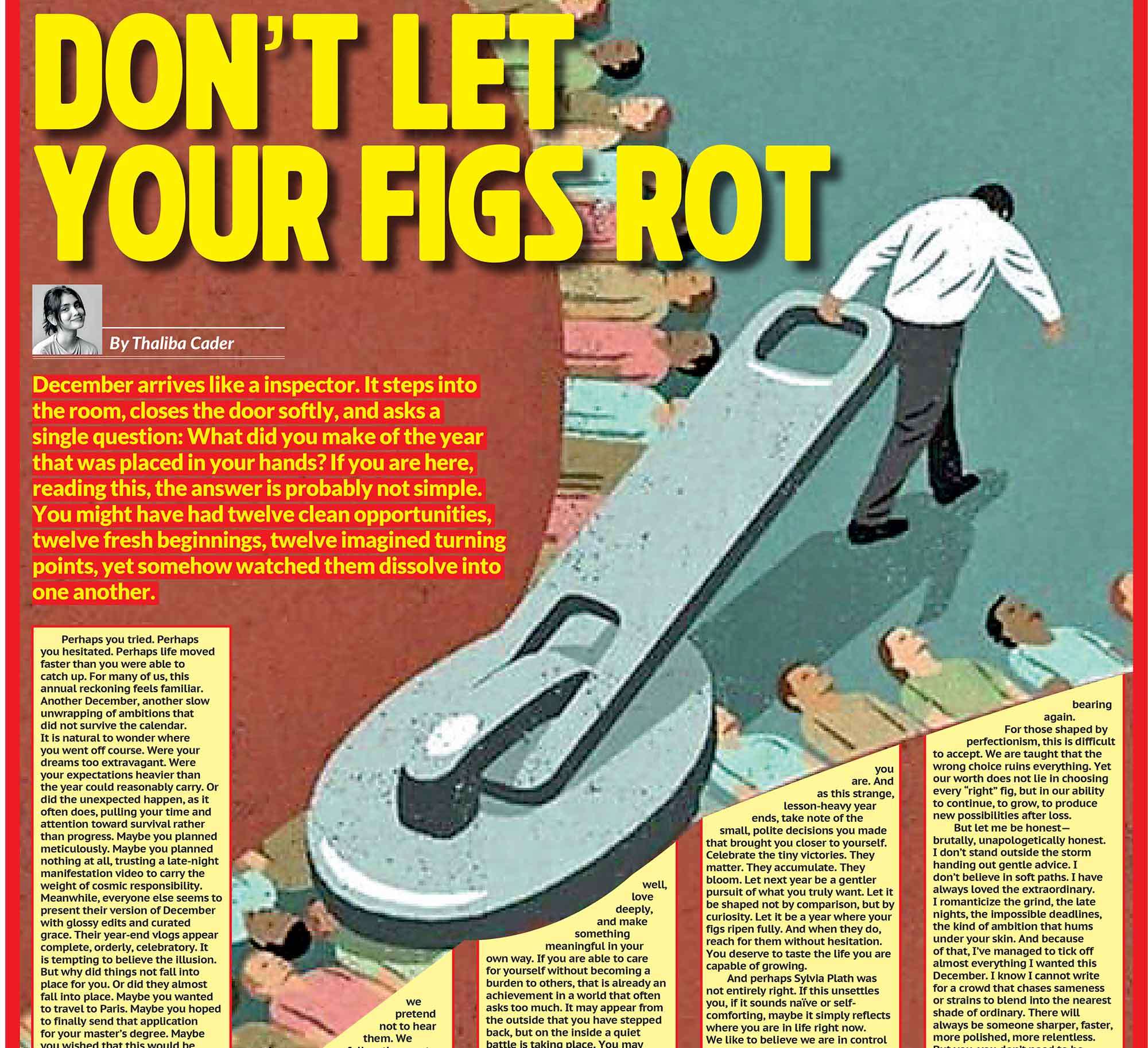

Fame Game, the popular talk show hosted by Kumar de Silva and Rozanne Dias, has always been a platform for extraordinary individuals with unique stories to share. In one of its most engaging episodes, the spotlight was on Anusha David, a woman whose tireless work for animal welfare has touched countless lives, both human and animal. Joined by her inseparable companion, Anusha opened up about her personal journey, her philosophy of life, and the inspiration she draws from the animals she rescues and nurtures. During the Covid pandemic, Anusha went out almost every day to feed stray dogs, cats, and other animals, even amid curfews and extreme hardships. Braving the blazing sun in her straw hat, she secured permission to move around and ensured that the most vulnerable animals had food. A photograph of her in action circulated widely in the media, symbolizing her courage, determination, and unwavering commitment to the welfare of animals. This remarkable dedication set the tone for a candid conversation about her journey, her philosophy of life, and the inspiration she draws from the animals she rescues and nurtures.
Q Welcome to Fame Game, Anusha. Today, you have brought along your pet, Jax, who is certainly stealing the spotlight as the chief guest in his own right. To start off, why dogs?
It is not just dogs! My love for animals runs deep. When I first got married, I even asked for an elephant as a wedding present. I grew up in Ampara, surrounded by elephants, monkeys, snakes, chickens, birds, and dogs. My father was a devoted animal lover, and I guess this passion runs in my blood.
Q And what is special about Jax?
Jax’s story is quite remarkable. He was run over by his own owners, not deliberately, it was an accident, but they dumped him at the vet and walked away. The vet called me, and I could not say no. That was four years ago. Jax is a Miniature Dachshund. His legs are paralyzed, so he wears a pamper. Despite this, he has incredible energy and spirit. His motto is “Never Say Die.” He even thinks he can fly. His determination is incredible, whether he is chasing cats or crows or playing with other dogs.
Q How does Jax inspire you personally?
He inspires me daily. He never gives up. He is full of life and full of joy. Even when he is chastised, he just looks at you with that expression that says, "What are you scolding me for?" He loves attention, photography, and being filmed. More than just a pet, he is a source of therapy. We have conducted pet therapy sessions at the Indira Cancer Home for Children, and while the children loved it, the real beneficiaries were often the caregivers and parents.
Q You mentioned your mission to rescue and care for animals. Does this mission involve other types of animals as well, beyond dogs?
Yes. A couple of years ago, we had to go to court because the government was trying to export 300,000 macaque monkeys, supposedly for zoos. Even a country as large as China could not accommodate that many monkeys, so it was clear they were being exported for other purposes. In Sri Lanka, we have a significant population of monkeys, and unfortunately, very little has been done to sterilize them. The same issue applies to dogs.
There has also been a recent increase in dog orphanages and dog homes.
That increase is not purely an altruistic gesture. Many people are seeing it as a way to make money. Sadly, some so-called animal welfare people are doing it primarily as a source of income rather than out of genuine concern for the animals.
Q How do you fund your work with the animals?
I fund it myself. Every cent I earn from my work in public relations goes directly to the animals. I am fortunate to have a partner, Michelle, who supports me completely, which is incredibly important.
Q Did the economic crisis affect your work?
Absolutely. Until the economic crash, I did not even have a website. Overnight, prices of essential goods like rice, dhal, fish, chicken, and pet food skyrocketed, sometimes quadrupling in cost. It became a huge challenge to manage everything, especially because I have both a shelter and street feeding responsibilities. The crisis forced me to rethink how I could sustain this work and eventually led to the creation of a website to help manage support and funding.
Q How many dogs do you have and where is the shelter located at?
Today, we have close to ninety dogs. The shelter is now located at Weediyagoda. It used to be at my home, but we relocated it to provide a better environment. We have a team to manage everything, including three staff members who take care of the animals daily.
Q Are you an NGO?
I am a registered trust, and I am in the process of obtaining official NGO status, which would make certain aspects of the work easier. I was very late in formalizing this because, although the trust was incorporated over twenty-five years ago, I had never engaged in fundraising until recently.
Q You have spoken about your passion for elephants and wildlife. What is your perspective on keeping elephants in captivity, particularly in temples?
Animals belong in the wild. They do not belong in temples, in people’s houses, or in zoos. At one time, zoos were seen as necessary for the perpetuation of species, but now we have progressed far beyond that. Wildlife specialists provide guidance on how these situations should be handled. Animals, especially those whose legs are tethered or chained, experience extreme stress from noise, smoke, and constant human interference. Their senses, particularly hearing, are far more acute than ours, so the experience is horrific. It is difficult to imagine that in the 21st century, festivals or peraheras are considered incomplete without the inclusion of wild animals. This is outdated thinking. People’s desire to own elephants or pedigreed dogs, rather than adopting local animals, is largely ego driven. They want status symbols rather than taking responsibility for the well-being of animals. This approach is both cruel and unnecessary.
Q On a personal note, are you a vegetarian?
I was a “fish-tarian” at one point, but mostly I ate carbohydrates and sweets. After spinal surgery, I briefly ate chicken but then returned to a diet heavy in carbohydrates and sweets. I loved jam, white bread, and fizzy drinks. My doctor once told me that my cholesterol was dangerously high, which led to dietary adjustments. Nevertheless, my love for sweets has always remained a part of my life.
Q How would you describe yourself in a few words?
Some say I am difficult to get along with, but I view life practically and focus on what matters. My personal life and work are separate. For example, while I may look casual feeding animals on the street, I dress impeccably for functions.
Q Any memorable incidents during your journey up to now?
Many. I once had to intervene when a man tried to throw a baby into a lake during an altercation. I grabbed my umbrella, stopped the man, and rescued the child. My small stature often works to my advantage, as people underestimate my actions. My umbrella has become my ammunition, like a James Bond gadget.
Q How would you compare handling animal welfare work in Sri Lanka to doing similar work overseas?
Overseas, working in a vet clinic without a veterinary degree is not allowed. You can volunteer for basic tasks like cleaning. Here, unfortunately, animal welfare is often seen as menial work. Many pursue it without genuine care. Even vets in Sri Lanka sometimes enter the field because they could not pursue medicine, not necessarily because of love for animals.












